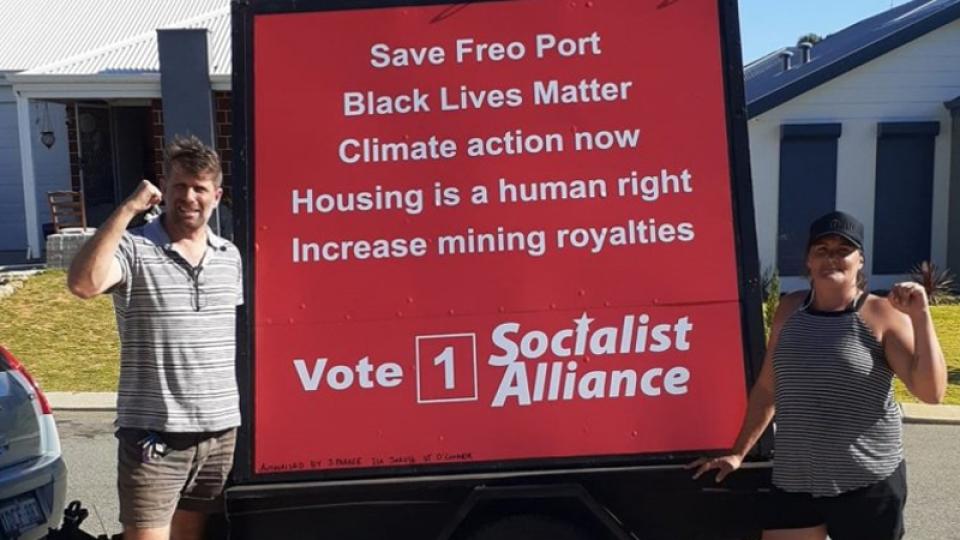WA Labor’s electoral reforms: one step forward, two steps back

Under the cover of applying “one vote, one value” to elections for Western Australia's Legislative Council, last month WA Labor also pushed through legislation that disadvantages smaller political parties.
This follows a three-decade-long pattern of Labor and the Coalition responding to the long-term decline in their primary vote by making it harder for other parties to stand.
Currently, the Legislative Council is made up of 36 members elected from 6 regions under a proportional and preferential voting system.
While 70% of WA’s population lives in Greater Perth, only three regions (and half the seats) are allocated to it. This is a huge weighting in favour of rural and regional areas.
WA Labor has long wanted to abolish this undemocratic imbalance.
The Liberals and Nationals are crying foul, arguing Labor has used its huge majority in both houses of parliament to rush through electoral reforms, despite insisting it had no plans to do so before the 2021 state election.
Labor’s cynicism, and the Liberals and Nationals grizzling about it, are secondary considerations. One vote, one value is a necessary step forward.
The conservatives, however, are on stronger ground when arguing that the upper house could become almost completely dominated by city dwellers.
It would have been preferable to bring in one vote, one value while also preserving a guaranteed but smaller rural and regional representation. The conservatives could have done this when in government, but they did not.
Instead, Labor has opted for a single statewide electorate, which will take effect at the next state election in 2025.
The new electoral laws also contain regressive features, such as the introduction of optional preferential voting for the Legislative Council.
Previously, voting was the same as for the federal Senate prior to 2016, with voters able to number 1 box above the line and political parties distributing preferences according to Group Voting Tickets lodged with the Australian Electoral Commission.
Labor was keen to get rid of this system, which has seen small, mostly right-wing parties tightly preference each other and snare a seat from time to time.
In 2021, the Daylight Savings Party, Family First, Liberal Democrats, Flux the System and Fluoride Free struck a preference deal that resulted in the Daylight Savings Party winning a seat in the upper house Mining and Pastoral electorate, despite obtaining only 98 primary votes.
A more sensible and democratic reform would have been to instruct voters to number at least six boxes above the line or twelve boxes below the line, as is currently the case with Senate voting since 2016.
An optional preferential system that allows voters to just number one box risks many votes being exhausted. Presumably, WA Labor hopes this will help it squeeze out smaller parties, particularly the Greens. However, it could backfire on them.
When Premier Mark McGowan’s popularity returns back to Earth, which it surely will, WA Labor could well find itself in a position where it has a portion of a quota that could have been converted into another seat had Greens’ and other preferences flowed to it were it not for the change in rules.
This was the experience after Labor introduced optional preferential voting in Queensland in 1992. At the time, Labor hoped to starve the Liberal National Party of One Nation preferences. But 20 years later, it meant Labor was missing out on Greens preferences, leading Labor to push through a return to compulsory preferential voting in 2016.
In an even nastier blow against smaller parties, any party wishing to appear above the line on the Legislative Council ballot paper will now have to field at least 5 candidates, with each paying a $2000 deposit. The party will have to stump up $10,000 in deposits just to have its name on the ballot paper, and risks losing if it does not win at least 4% of the vote.
Despite the public spat between McGowan and mining magnate Clive Palmer over COVID-19 and border closures, the result of this reform will be to explicitly favour wealthy billionaires who can afford to establish pop-up political parties supported by saturation advertising.
The federal government’s recent failed attempt to introduce voter ID laws demonstrates how cynical bastardry is stock-in-trade for establishment parties when it comes to electoral regulation. Supposedly a measure to stamp out a non-existent “voter fraud” problem, its real purpose was to disenfranchise homeless, poor, young and Indigenous voters.
The fundamental reason for the decline in the primary votes of Labor and the Coalition is that they both sell the same rotten product: neoliberalism. Rigging electoral laws can only hide the rot.
Outfits like Pauline Hanson’s One Nation and the United Australia Party are part of the problem, allowing people to vent their frustration by beating up on the scapegoats provided by the same system, or sending them down conspiracy theory rabbit holes.
Neither the social nor ecological crises facing us can be solved within the logic of capitalism.
Whatever laws are thrown up to block our path, the Socialist Alliance is committed to building a force for change. Only people power can rescue our future from the billionaire class and the governments they control.
Help us build it now.
[Sam Wainwright is a national co-convenor of Socialist Alliance.]